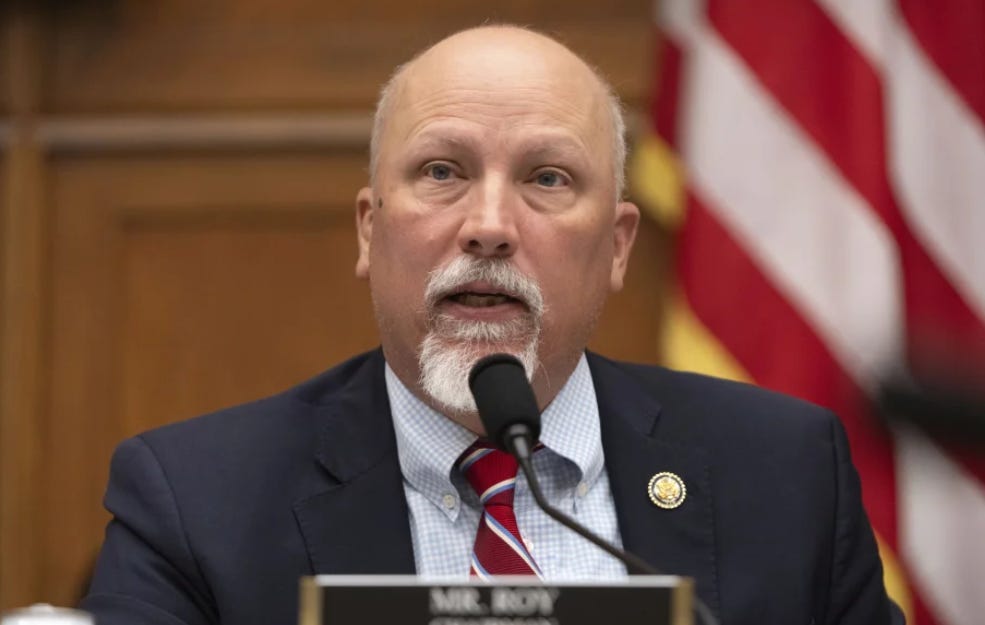D.C. Memo: Does the Government Shutdown Put Another Dent in the Senate Filibuster?
Rep. Chip Roy (R-Texas) says it’s time to use a simple Senate majority to fund the government.
▪️Photo Gallery: White House Ballroom Build Begins, Trump Elated▪️Federal Judiciary Starts Shutdown Furloughs▪️AT&T Exempts FWA from New Price Hikes▪️Analyst Dawson: BEAD’s Flaw Was D.C. Centralization▪️Cable TV Disappearing in Portland, Oregon▪️New Mexico Issues Small Broadband Grants▪️Hawaiian Telcom Keeping Fiber Promises to the State ▪️Quote of the Day: “Will Newsmax Be Able to Kill the Nexstar/Tegna Deal?”
Senate Shutdown: Filibuster or Silly-buster? For the eleventh time in 20 days, Senate Democrats (plus Kentucky Republican Rand Paul) yesterday voted to keep the federal government closed for business – a stalemate created by Senate rules that require 60 votes to pass most legislation. Democrats – which hold 45 seats, plus two aligned Independents – have been exploiting an honored Senate tradition reserved for the minority – the filibuster – to prevent government agencies like the FCC from functioning. To some, the filibuster needs to yield once again to simple majority rule. Rep. Chip Roy (R-Texas) yesterday urged Senate Republicans to consider the “nuclear option” to end the Democrats’ government shutdown, suggesting they bypass the chamber’s 60-vote filibuster threshold to pass a short-term funding bill, The Hill reported. “We need to be taking a look at the 60-vote threshold. We really do,” Roy told reporters, arguing the supermajority rule left Republicans “beholden to a broken system.” Roy said the House passed a clean continuing resolution two weeks ago, but Senate Democrats have blocked it repeatedly while seeking guarantees to extend Affordable Care Act subsidies. “Why don’t we just say, look, we have a 50-vote threshold for the budget, we have a 50-vote threshold for reconciliation − why shouldn’t we have a 50-vote threshold to fund the government?” he said. The filibuster has already been eliminated for nominees to the federal judiciary, including the Supreme Court, and other presidential nominees. Under Roy’s plan, Senate Republicans would use a simple majority to eliminate the filibuster on funding the government. When Democrats were last in control of the Senate, efforts to do away with the filibuster were blocked by Sen. Kyrsten Sinema (D-Ariz.) and Joe Manchin (D-W.Va.). Both have left the Senate and become Independents. Roy’s plan is unlikely to move ahead without strong White House support. Senate Majority Leader John Thune (R-S.D.) and House Speaker Mike Johnson (R-La.) have both opposed further erosion in the filibuster, fearing future Democratic policies that could pass with a simple majority. (More after paywall.)


